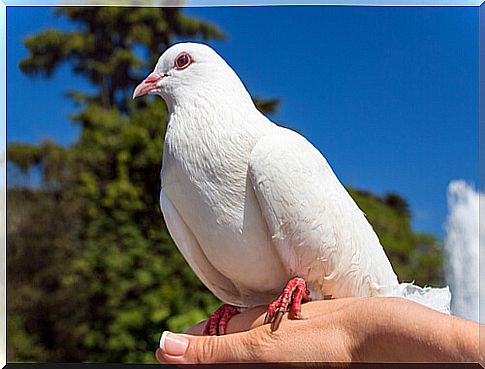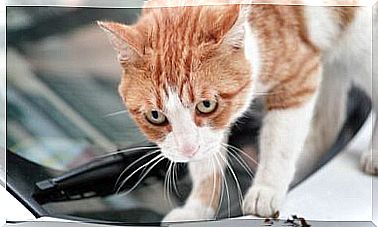Diseases That Pets Can Transmit To Us

Our beloved pets, in addition to providing us with affection and company, can transmit some diseases to us. Younger children and immunosuppressed people are the most likely to become infected. Therefore, it is important to take some precautions so that living with the animals in the house occurs in a healthy environment.
What are the diseases that pets can transmit to us?

We give you a list of the most common ailments that our beloved critters can transmit to us, either by direct contact, through some body fluid or with the help of an intermediary, such as mosquitoes.
- Cat-scratch disease. It is the most common infection transmitted by felines through bites and scratches or by simple contact of their saliva with your damaged skin. A bump or blister at the wound site is the first warning sign. Then fatigue, fever, headache, general malaise, and swollen lymph nodes near the affected area may appear. It usually does not require treatment.
- Toxoplasmosis Our meowing friends also carry the parasite Toxoplasma gondii , which is mainly found in their feces. People with toxoplasmosis most likely have no symptoms or have symptoms that are very flu-like. In any case, the greatest danger lies in pregnant women, who may suffer miscarriages or pass the infection to the fetus.
- Lyme’s desease. Contagion occurs when a tick that bit an infected pet also bites a person. The first reaction is a red rash around the bite. Flu-like symptoms follow. If it is not treated in time with antibiotics, inflammation in the joints and certain neurological problems can appear.
- Rage. Although it is controlled in much of the world through vaccination, there are certain regions where it still proliferates and is the cause of death of a large number of human beings. It is transmitted through saliva, through the bite of an infected animal. Symptoms include fever, headache, fatigue, confusion, hallucinations, and paralysis. Rabies treatment should be received immediately. Rabies can be transmitted by dogs, cats, farm animals, raccoons, bats, skunks, and foxes.
- Leishmaniasis. Sandflies are the transmitting insects of this disease. It usually affects dogs and the participation of the vector is essential for the infection to be transmitted to man. The clinical manifestations range from skin ulcers, which heal spontaneously, to severe cases in which there is severe inflammation of the liver and spleen.
- Toxocariasis. It is a disease caused by the parasitic worm Toxocara, which lives in the intestines of dogs and cats and is eliminated through excreta. It usually affects children under 10 years of age.
- Tub. It is a skin infection caused by various types of fungi. It can be contracted by touching infected cats and dogs. It is treated with antifungal medication.
Diseases transmitted by reptiles, birds and rodents

If you have less popular pets, you will not be exempt from being infected with a disease.
- Reptiles and amphibians, through their skin and feces, can pass on you a rare form of salmonella that causes headache and abdominal pain, fever, diarrhea, and rashes on the chest and back.
- Rodents are often carriers of bacteria and viruses. Although these are rare diseases, they have serious consequences, including death. This is the case of the hantavirus . They also transmit leptospirosis , rat bite fever, and a type of meningitis caused by the lymphocytic choriomeningitis virus .
- In the world of birds, psittacosis is one of the best known bacterial infections and affects mostly parrots. Transmission occurs when bacteria are aspirated from the dry excreta, secretions, or feather dust of infected animals. For its part, “pigeon disease” or cryptococcosis is contracted when a person inhales organisms present in the droppings of these birds.
Keeping your pets dewormed and maintaining good hand hygiene after stroking them, cleaning their droppings or handling other objects that belong to them, are good measures to avoid possible infections.









